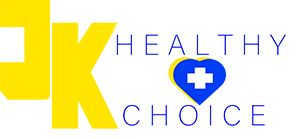The Importance of Sports Physicals

Sports physicals, also called a pre-participation exam (PPE), help determine whether it’s safe for a child or adolescent to participate in physical activity. Most schools require a sports physical, and some schools offer it to their students. But even if a PPE isn’t required, it is still highly recommended for young athletes to have one completed.
Here are the top reasons why it’s important for your child to get a sports physical:
- Maximize safe participation in physical activity
- Identify any life threatening medical conditions such as certain heart conditions
- Identify conditions that may limit participation such as a recent concussion
- Identify conditions that require a treatment plan, such as uncontrolled blood pressure, eating disorders or certain lung conditions
- Identifying and fully rehabilitating old musculoskeletal injuries, as previous injury is the strongest predictor of a future sports injury. Proper rehabilitation can lead to lower injury rates.
- Remove unnecessary restrictions on participation in sports
- Advise children and adolescents which sports would be appropriate for them to participate in
- Allows the doctor time to discuss important issues such as healthy eating habits, avoidance of drugs or alcohol, and the importance of wearing seat belts and helmets
During sports physicals, the physician will address conditions that may restrict athletic participation. These include the following:
- Knee instability
- Femur fracture
- Elbow dislocation
- Irregular heart beat
- Abdominal mass
- Fever: Children and adolescents with fever should be restricted from participation as fever may accompany other infections that may make exercise dangerous. Fever also increases the risk of heat illness.
Components of the Sports Physical Exam
- Medical history
- Injury history
- Cardiovascular history
- Vital signs
- General Exam
Getting a PPE once a year before the school year begins is recommended. The sports physical should be completed about 6 weeks prior to the athletic season to allow enough time to follow up on any health issues that may be identified during the physical. Even if the physical doesn’t detect any health problems, you should seek medical attention if new health problems emerge during the sports season.
‹ Back







